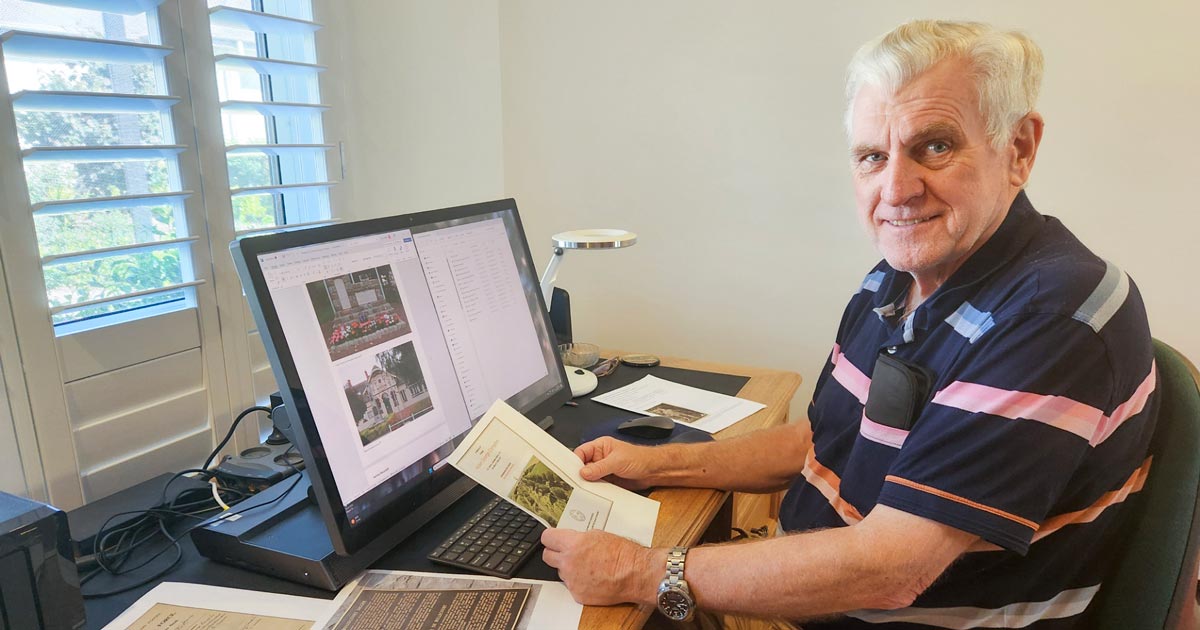IT WAS A POIGNANT MOMENT WHEN GEMLIFE RAINBOW BEACH HOMEOWNER TONY O’NEILL TRAVELLED TO FRANCE TO SEE WHERE HIS GREAT UNCLE HERBERT DIED IN COMBAT FOR HIS COUNTRY AGAINST THE GERMANS.
Private Herbert George Compton, of Maitland, made the ultimate sacrifice for Australia in the Great War of 1914-1918, taking his last breath in a trench on 15 May 1917. He was just 19 years old. It was the last day of the 2nd battle of Bullecourt before the Germans withdrew when unable to take the Australian lines.
According to records kept by the Australian War Memorial, some 61 soldiers in 4th Platoon A Company 54th Battalion were killed that day, with 201 wounded.
When Tony visited France, he found the likely gravesite where Herbert was buried alongside 20 others – however, the exact position of the grave was lost in bombardments as war continued. Tony said that was a difficult reality to comprehend.
“It is difficult on the soul looking at locations and gravesites, and I found three days was as much as I could take because of the number of missing Australians on the memorials, and those listed as dead,” Tony recalled of his 2011 trip to the Villers-Bretonneux Memorial in France and fields.
“I could see why it was terrible for people at the time. Unfortunately, Herbert’s family were unable to afford to visit in their lifetime. My great uncle also never got to meet my dad as he died before dad was born. I only found out after dad passed that he was named Herbert George O’Neill, after my great uncle Herbert.”
The European trip enabled Tony to piece together more of his family’s service history.
Tony himself served with the defence forces for 40 years before retiring in Canberra and moving to GemLife Rainbow Beach with wife Shelley. He served 20 years in the Royal Australian Air Force as an air-traffic controller and later retrained – going back to university to gain a degree in information technology.
He then worked for 20 years doing IT systems contracting work for the defence force. Tony’s father had also been in the RAAF during World War Two as a transport driver based in Darwin and Townsville.
“To me, Anzac Day means service to country, sacrifice as necessary, and also a lot of pride,” Tony said.
